- Home
- Franklin W. Dixon
The Desert Thieves
The Desert Thieves Read online
Contents
* * *
1. A Near Miss
2. The Trouble with Big Ears
3. A Suspect Arrives
4. A Midnight Adventure
5. On the Trail
6. Getting Too Close
7. The Secret in the Footprints
8. Two Shakes of a Snake’s Tail
9. Straight Up for Trouble
10. The Jaws of Danger
11. Not All Cowboys Are Heroes
12. A Prisoner Is Taken
13. A Father Goes Down
14. The Body by the Road
15. Making a Run for It
16. A Long Desert Night
1 A Near Miss
* * *
“I thought the desert would be nothing but sand dunes,” Joe Hardy said. “There isn’t any sand here, let alone dunes.”
Standing beside a white U.S. Forest Service car, Joe looked out at a sweep of pale green trees, dark green bushes, and cacti growing from sand-colored earth. A hundred yards away, a mountain with rocky cliffs rose steeply out of the desert. In the distance were other brown hills and mountains.
Joe thought it felt strange to be wearing just a T-shirt and jeans in the dead of winter, but he was having no trouble getting used to it. He and his older brother, Frank, were on winter break from school. Fenton Hardy, their father, had brought them with him on a business trip to Arizona. Once Fenton had completed his business, they’d rented a motor home and driven two hundred miles into the desert for a surprise visit to Winton Grisham, an old college friend of Fenton’s.
Joe leaned against the car and looked over at his father and Frank, who, like him, were wearing sunglasses. His father was catching up on things with Grisham, or Grish, as he liked to be called. What a cool job, Joe thought, to be a park ranger at Organ Pipe Cactus National Monument. It was the largest natural preserve in the lower forty-eight states, right on the U.S.-Mexico border. Joe thought Grisham looked every inch the part of head park ranger. A burly man with sandy hair and large, powerful hands, he wore a cowboy hat and a green shirt with a name tag.
To make the trip more interesting, though, Joe almost wished they could find some sort of mystery to solve. Back in their hometown of Bayport, Frank and Joe spent much of their time investigating crimes and had become crack detectives, even though Joe was only seventeen and his brother eighteen. Their father was a famous professional detective, and the brothers had learned a lot from him.
Grish tipped his hat back and reached into the trunk of his car for a large water jug and some cups. He poured four cups of water and handed three of them to the Hardys.
“This is typical weather for early January,” Grish said in answer to Frank’s question. “The daytime temperatures are in the fifties or sixties. Summer time highs are well above a hundred, though, which is why we have a rule about always carrying water.”
“The plants here don’t seem to need much water,” Frank said. “They look tough.”
Joe pointed to a small cactus. “Those spines look like something I wouldn’t want to tangle with,” Joe said.
Grish smiled. “That cactus is called a jumping cholla. Pieces of it can break off and stick to your foot or hand so easily they seem to jump right off the plant. Out on the range, you can sometimes see cattle with pieces of cholla stuck to their lips.”
“Yikes,” Joe said, stepping away from the cactus.
“As I was saying, the rains are often months apart,” Grish said. “To conserve water, the cacti swell up and store it in their tissues.”
Pointing to a tall, slender cactus that looked like a rocket ship with arms, Joe asked Grisham what it was.
“That’s a saguaro cactus. It’s the one that a lot of people think of when they think about the desert here in the Southwest.”
Then he pointed to another cactus in the distance. “See that tall one over there?” About fifteen feet tall, it looked like a cluster of many long, tubular branches that started at the ground and came up to a rounded tip. “It’s called an organ pipe cactus. This park is named for them—Organ Pipe Cactus National Monument. All the wildlife and plants here are protected. To disturb or remove anything is considered a violation.”
Grisham glanced at his watch. “But listen, I have to get you guys back to the campground. I’ve got some work to do at my office before suppertime.”
“Right, and we should start fixing some grub,” Frank said. “Isn’t that how they say it out here in the West?”
“Well, not anymore,” Grish said, shaking his head with amusement. “Maybe they used to.”
“Grish, how about joining us for dinner at the campground?” Fenton asked. “We’ve got a lot of catching up to do after all these years.”
Grish said, “That would be great, but I have to get a few things done first. Say, how long has it been since we’ve seen each other?”
“About twenty years, old friend,” Fenton said.
Grish got into the car on the driver’s side and said, “I hate to think it’s been that long.”
The three Hardys climbed in, with Frank and Joe in back. As Grish drove, Joe ran a hand through his blond hair and looked at the thick vegetation. He wondered how any living thing could survive the heat and dryness of summer.
As if to answer his question, Grish said, “This desert probably looks pretty harsh to you boys. In fact, during the day, when the heat is most intense, most of the creatures keep themselves sheltered. At night, though, they all come out looking for food.”
“How do they find food in the dark?” Joe asked.
“Good noses and good night vision,” Grish said. “Some eat seeds and leaves, and others go hunting for the ones that eat seeds and leaves. You’ll hear the coyotes tonight for certain. They sing all night.”
Grish drove along a one-way dirt road that wound around the mountain.
“Those cliffs look pretty steep,” Frank said. “With all the tourists around, do you ever have a problem with climbers getting hurt?” The Hardys were trained rock climbers. They had brought along ropes and gear, hoping to do some climbing in this strange environment.
“There are accidents every year,” Grish said. “You can count on that. Those little mountains beside us are called the Diablos—the Devil Mountains. In the winter we usually have to rescue a few people who don’t know how to climb safely. No problem with climbers in the summer, though: the rocks are too hot to touch, and nobody with any sense goes climbing.”
At that moment something odd at the side of the road caught Joe’s eye. He looked out the window and saw bushes crushed flat, as if someone had driven a truck over them.
“Whoa!” Joe exclaimed. “Grish, stop! Look back there. Someone’s been doing some serious off-road driving.”
The car skidded to a stop. “Where?” Fenton asked.
“Right back there,” Joe said. “Grish, back up a bit.”
Grish backed the car along the road until they drew even with the path of crushed plants. Parallel tracks from a heavy vehicle ran for two dozen yards. Perpendicular to the road, they were marked by crushed and broken branches. Two yards past the end of the tracks was a hole about four feet across, as far as Joe could tell. He could also make out several small crushed pulpy cacti that had been destroyed by the careless driver and were now bleeding a white liquid.
“What in the world happened here?” Fenton asked. “This is a disaster.”
Grish said nothing for a moment, then drew a long breath. “It’s a disaster, all right,” he said. “This national park is a protected area. Someone is clearly defacing this land. We’ve got a situation here that needs to be dealt with.”
“Who would do something like this?” Joe asked. “Off-roaders?” He began to open his door t
o get out, but Grish stopped him.
“We don’t have time to stop right now, Joe,” Grish said. “I’ve already seen the damage.” He put the car into gear and pulled away.
“Those aren’t the tracks of an off-road vehicle,” Frank said. “See the double-tire marks? Those must have been made by a large truck.”
“What’s the story, Grish?” Fenton asked.
Grish said, “Those tracks were found this morning. I wasn’t going to say anything, because I’m a stickler for the rules, and the rules say I’m not supposed to discuss an ongoing investigation.”
“But who would drive a big truck out in the desert?” Frank asked.
“Cactus thieves,” Grish said.
Frank and Joe responded in unison: “Cactus thieves?”
“Yes,” Grish said. “Cactus thieves. Someone has been stealing large cactus specimens—saguaros and organ pipes mostly, as far as I can tell. I’m pretty sure I know who is involved. It’s one of my maintenance workers, David Kidwell. I think I’ll be having him arrested pretty soon.”
“What makes you think it’s him?” Frank asked. “How many maintenance workers do you have?”
“I have three others,” Grish said, “but Kidwell used to be a landscaper in Phoenix, working with a nursery specializing in desert plants. He’s the only one who would know how to remove large specimens.”
Joe pointed toward an organ pipe cactus and said, “Those long arms look as if they would break off if someone tried to move the plant.”
Grish nodded. “That is true of a large plant like that one, yes. But a medium-size one could have its arms braced with ropes and a wooden frame. Even a large organ pipe could be stolen if the thieves knew what they were doing.”
“Why would anyone want to steal a cactus?” Frank asked.
“Money,” Grish told him. “Desert landscaping is becoming popular in the cities of the Southwest. People like to plant cactus and other desert flora in their yards. Builders get more money from new-comers if the development looks like the desert. Some of them will pay lots of money for good specimens of rare types. Of course, organ pipe cacti must be planted where there is no frost, but there are areas of California and Texas like that. A large, professionally transplanted organ pipe specimen would be worth thousands of dollars.”
“Wow!” Joe said. “I had no idea.”
“Isn’t it a federal offense to disturb the desert habitat?” Fenton said.
“Absolutely,” Grish said. “The term we use for stealing cacti is cactus rustling. Just like the cattle rustling from the days of the Old West.”
“How many cacti have you lost?” Frank asked.
“I’m not sure,” Grish said. “Ten or twelve, maybe. Right now I’m hoping to catch Kidwell in the act. But I’d appreciate it if you guys would let the matter drop and not talk about it. The investigation has been going on for a couple of months, and you’re only here for a few days. I don’t want the thieves to get spooked by too much talk. And besides, it’s the rule.”
“I think you know you can trust us,” Fenton said to Grisham.
“Maybe Joe and I can help you with the investigation,” Frank volunteered.
Grish looked skeptical. “No offense,” he said, “but I doubt that a couple of amateur detectives tramping all over the desert would be much help.”
An indignant look flashed across Joe’s face. “Amateur?” he repeated.
“It’s okay, Joe,” Frank said. “Chill out. Maybe we’ll just keep our eyes open while we’re on vacation here.”
“Well, as I said,” Grish replied, “no offense, but this is a job for someone who knows the territory. I’ve even asked for help from a cactus cop in Phoenix. The problem is that government budgets are being cut, people are being laid off, and it takes longer to get things done. I’m pretty frustrated with the whole system.”
“A cactus cop?” Fenton asked.
“I’m not kidding,” Grish said. “Arizona has investigators called cactus cops who try to stop the cactus rustlers.”
Joe laughed. “That sounds a lot like the marshal going after the cattle rustlers,” he said. “We really are in the Old West, aren’t we?”
“Well, not exactly the Old West,” Grish said. “But some things don’t change much.”
Joe pointed ahead toward a plume of dust rising above the desert along the road. “Look at that dust trail,” he said. “Someone is headed this way pretty fast.”
“Sometimes the tourists go tearing along these roads as if they were racing in the Indy Five Hundred,” Grish said. “It makes me mad.”
“I think you’re forgetting something,” Frank said, growing tense. “This is a one-way road. Whoever that is is headed right at us.”
Grish’s eyes grew wide. “You’re right!” he exclaimed. A small blue pickup truck had come around the bend and was barreling straight at them.
2 The Trouble with Big Ears
* * *
Grish veered sharply to the edge of the road, barely in time to avoid a head-on collision. The blue pickup roared past, leaving the air thick with dust.
“Who was that?” Joe cried. “We could have been killed!”
Grish set his jaw with determination, wheeled the car around, and took off into the dust after the blue pickup. “That was David Kidwell,” Grish said tightly. “I don’t know what he’s up to this time, but he can’t go around forcing people off the road.”
Grish’s fingers gripped the wheel angrily as he squinted through the windshield, straining to see beyond the thick dust cloud being thrown up by the other vehicle. Joe and Frank tried to catch a glimpse of the pickup, but it had too much of a head start. Gradually the dust cleared, but by then the blue truck was gone from view.
“If I remember right,” Frank said, “there aren’t any turnoffs along this road. Unless he heads across the desert, we should catch up with him.”
“The problem is that all the roads in this park are a one-way loop,” Grish explained. “It cuts down on damage to the desert and accidents way out here. He’s going the wrong way, and he’s going so fast he could have a head-on with another vehicle.”
At that moment they spotted the blue pickup ahead, stopped at the side of the road. When they drew nearer, they saw that it was parked at the site of the destruction they had seen earlier. A tall man with dark hair was walking toward the truck with a shovel in his hand. He wore a gray work uniform and appeared to be about twenty-five. He scowled as Grish pulled up behind the pickup.
Grish leaped from the car and slammed his door as Frank, Joe, and Fenton also climbed out.
“What do you think you’re doing, Kidwell?” Grish yelled. “Are you crazy? You know as well as I do that this is a one-way road.”
Kidwell stood unmoving, shovel in hand. “I came to get my shovel,” he said.
“Your shovel?” Grish asked, incredulously. “Your shovel? You almost ran us off the road driving like a madman—for a shovel?”
Kidwell nodded. “That’s it,” he said. “It was my dad’s shovel. I was afraid it would be gone by the time I got here.”
“Why would you be afraid of that?” Frank asked.
Kidwell looked Frank up and down, seeming to be aware of the Hardys for the first time. “Who are you?” he said to Frank.
“I’m Frank Hardy. This is my brother, Joe, and our father, Fenton. I was just wondering why you would be afraid your shovel would be missing from a place like this, out in the middle of nowhere.”
Kidwell shrugged. “I’m not supposed to talk about it,” he said.
“Not supposed to talk about what?” Joe asked.
Kidwell looked at Grish, then said, “Nothing. Forget it. Sorry I scared you.” He laid the shovel in the back of his truck, opened the cab door, and got in. “I gotta go. Guess you’ll want to talk to me in the morning, boss?”
“You guessed right,” Grish said with a touch of sarcasm. “First thing. Be on time.”
“No problem,” Kidwell said. He started his tru
ck, turned sharply across the roadway, and then headed out in the correct direction along the one-way road.
“What was that all about, Grish?” Frank asked. “He’s not the most talkative guy in the world, is he?”
Grish opened his door and motioned for the Hardys to get in. “You’re right,” he said. “Kidwell doesn’t say much. But I’ve given him and the other maintenance people explicit instructions that if they discuss the investigation, they’ll be put on administrative leave.”
“You mean they’ll be fired?” Joe asked, as Grish turned the car around and headed back toward the campground.
“More like they’ll be suspended for a while without pay,” Grish said.
“I don’t understand,” Frank said. “You said you don’t want a lot of talk about the investigation to spook the thieves. And you suspect that Kidwell is one of the thieves. But he knows about the investigation?”
“That’s right,” Grish said. “I can’t hide the fact that an investigation is under way. All my workers know about it, and so do some of the long-term residents of the campground. As for the details of the investigation, though, that’s another matter.”
“How long has Kidwell been working for you?” Frank asked.
“About two months,” Grish said. “He knows a lot about the ecosystem here. He’s quiet and seems to be a very thorough worker. I thought he was going to be perfect for the job.”
“What makes you think he’s involved with the cactus thefts?” Fenton asked.
Grish seemed annoyed as he said, “Time, partly. The thefts started just a few days after Kidwell was hired. And don’t forget he has the background and skills to be able to dig up large plants without hurting them. Also, he discovered most of the vandalized sites, including the one we saw today, even when he had a work assignment in a different section of the park.”
“Why would that make him a suspect?” Frank asked. “If he was involved in the crimes, wouldn’t he want someone else to discover them?”
“He’s trying to look innocent,” Grish said. “But I’m not buying it. I’m hoping to catch him and his accomplices in the act, but I haven’t been able to figure out whom he’s working with yet.”

 The Great Pumpkin Smash
The Great Pumpkin Smash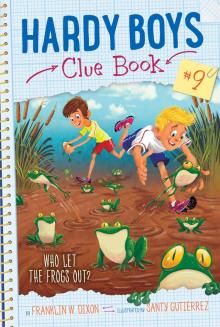 Who Let the Frogs Out?
Who Let the Frogs Out?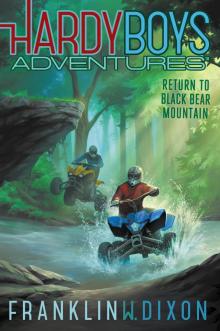 Return to Black Bear Mountain
Return to Black Bear Mountain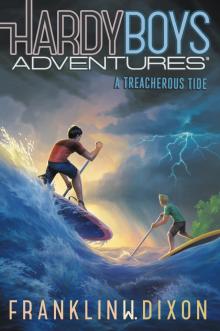 A Treacherous Tide
A Treacherous Tide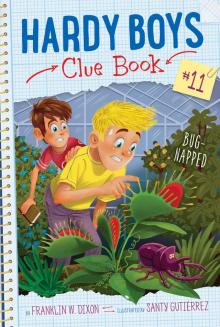 Bug-Napped
Bug-Napped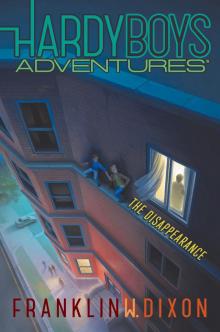 The Disappearance
The Disappearance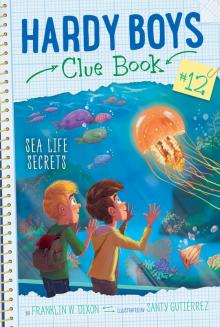 Sea Life Secrets
Sea Life Secrets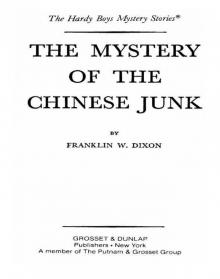 The Mystery of the Chinese Junk
The Mystery of the Chinese Junk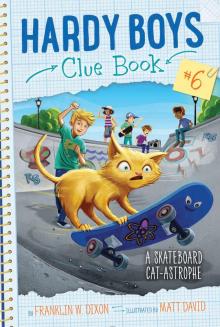 A Skateboard Cat-astrophe
A Skateboard Cat-astrophe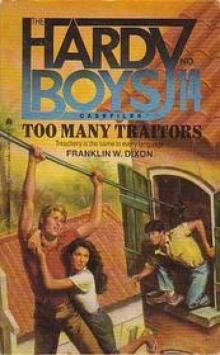 Too Many Traitors
Too Many Traitors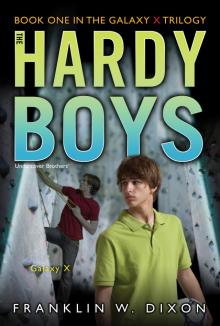 Galaxy X
Galaxy X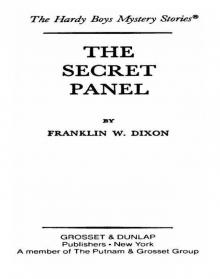 The Secret Panel
The Secret Panel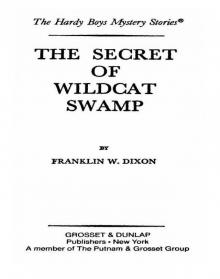 The Secret of Wildcat Swamp
The Secret of Wildcat Swamp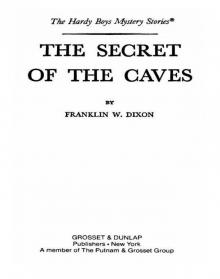 The Secret of the Caves
The Secret of the Caves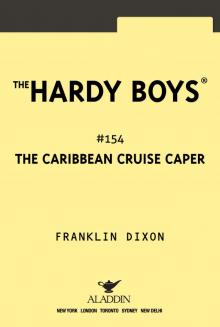 The Caribbean Cruise Caper
The Caribbean Cruise Caper Without a Trace
Without a Trace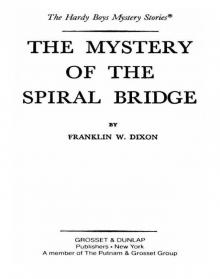 The Mystery of the Spiral Bridge
The Mystery of the Spiral Bridge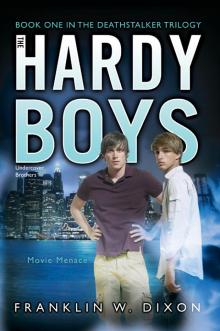 Movie Menace
Movie Menace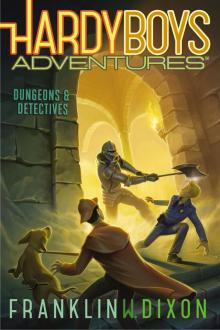 Dungeons & Detectives
Dungeons & Detectives Water-Ski Wipeout
Water-Ski Wipeout The Case of the Psychic's Vision
The Case of the Psychic's Vision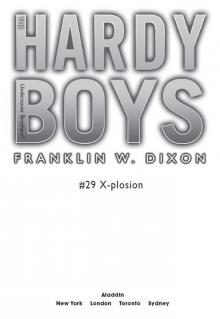 X-plosion
X-plosion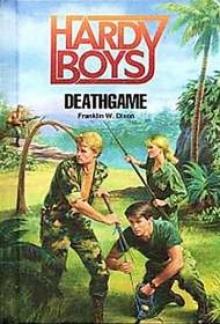 Deathgame
Deathgame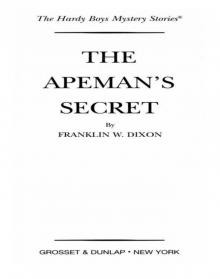 The Apeman's Secret
The Apeman's Secret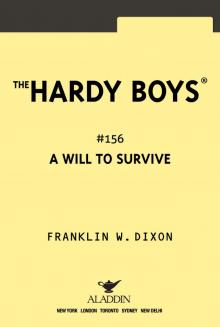 A Will to Survive
A Will to Survive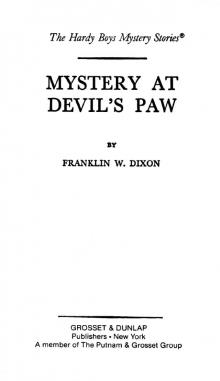 Mystery at Devil's Paw
Mystery at Devil's Paw Blood Money
Blood Money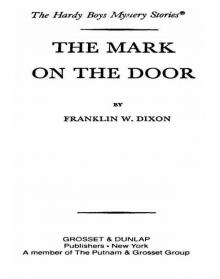 The Mark on the Door
The Mark on the Door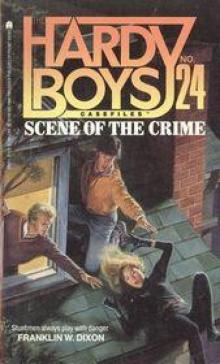 Scene of the Crime
Scene of the Crime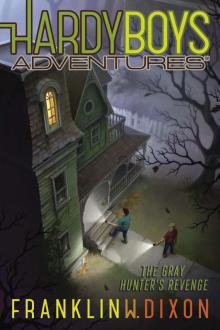 The Gray Hunter's Revenge
The Gray Hunter's Revenge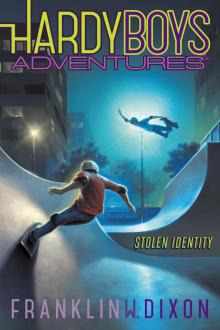 Stolen Identity
Stolen Identity The Mummy's Curse
The Mummy's Curse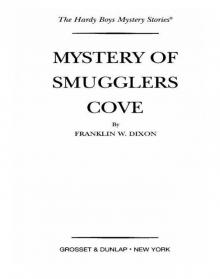 Mystery of Smugglers Cove
Mystery of Smugglers Cove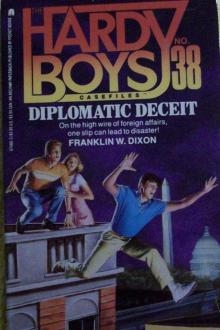 Diplomatic Deceit
Diplomatic Deceit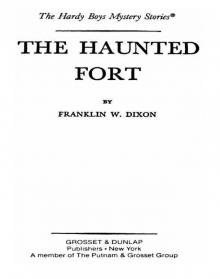 The Haunted Fort
The Haunted Fort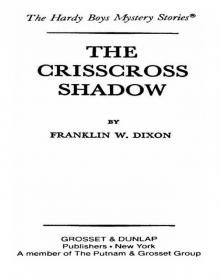 The Crisscross Shadow
The Crisscross Shadow Secret of the Red Arrow
Secret of the Red Arrow Trial and Terror
Trial and Terror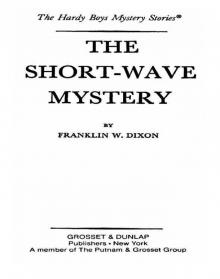 The Short-Wave Mystery
The Short-Wave Mystery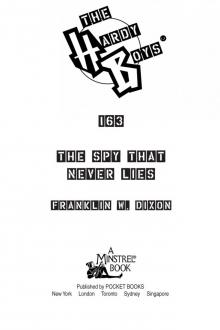 The Spy That Never Lies
The Spy That Never Lies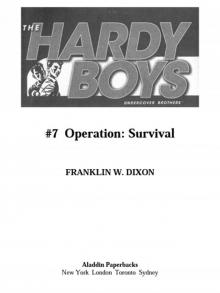 Operation: Survival
Operation: Survival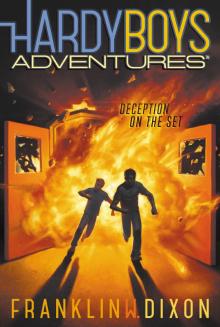 Deception on the Set
Deception on the Set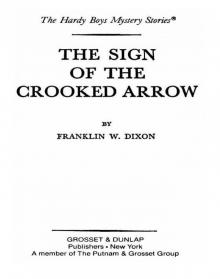 The Sign of the Crooked Arrow
The Sign of the Crooked Arrow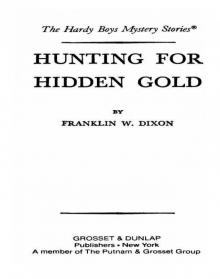 Hunting for Hidden Gold
Hunting for Hidden Gold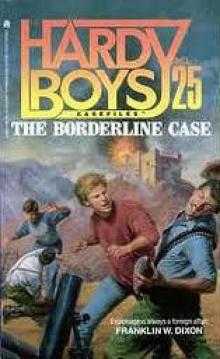 Disaster for Hire
Disaster for Hire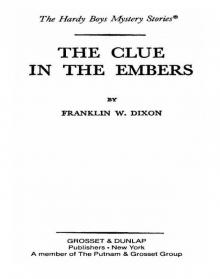 The Clue in the Embers
The Clue in the Embers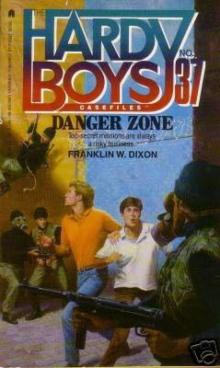 Danger Zone
Danger Zone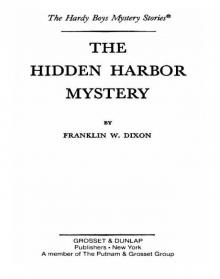 The Hidden Harbor Mystery
The Hidden Harbor Mystery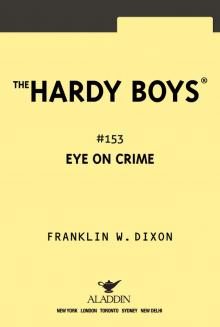 Eye on Crime
Eye on Crime A Game Called Chaos
A Game Called Chaos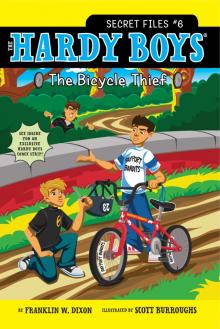 The Bicycle Thief
The Bicycle Thief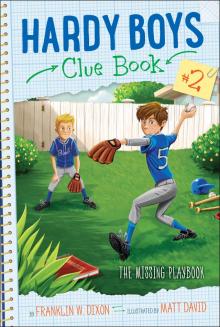 The Missing Playbook
The Missing Playbook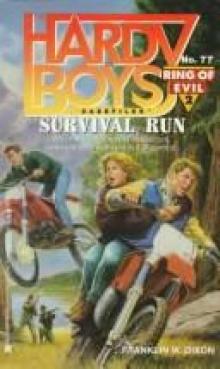 Survival Run
Survival Run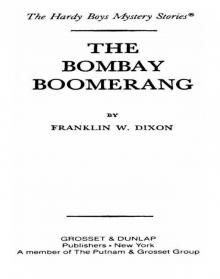 The Bombay Boomerang
The Bombay Boomerang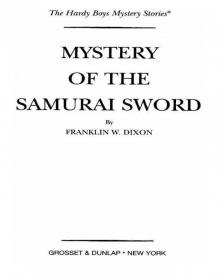 Mystery of the Samurai Sword
Mystery of the Samurai Sword Burned
Burned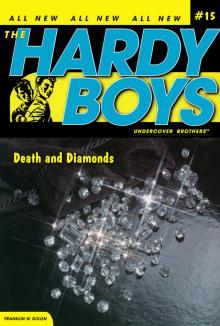 Death and Diamonds
Death and Diamonds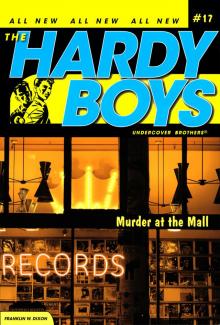 Murder at the Mall
Murder at the Mall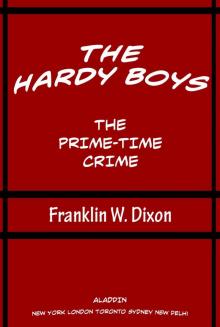 The Prime-Time Crime
The Prime-Time Crime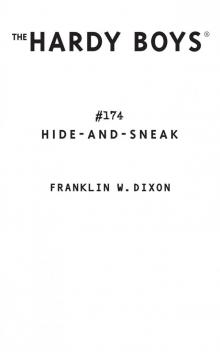 Hide-and-Sneak
Hide-and-Sneak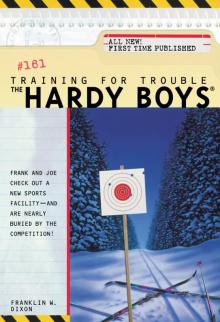 Training for Trouble
Training for Trouble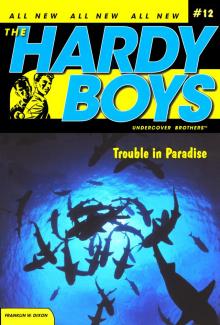 Trouble in Paradise
Trouble in Paradise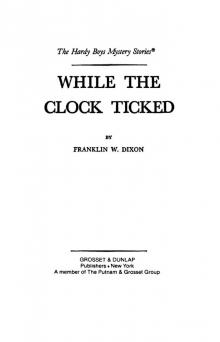 While the Clock Ticked
While the Clock Ticked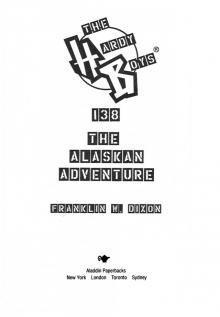 The Alaskan Adventure
The Alaskan Adventure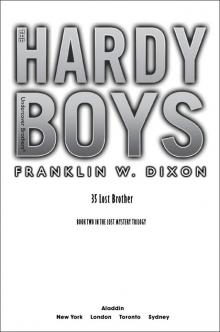 The Lost Brother
The Lost Brother Tunnel of Secrets
Tunnel of Secrets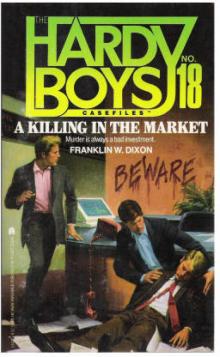 A Killing in the Market
A Killing in the Market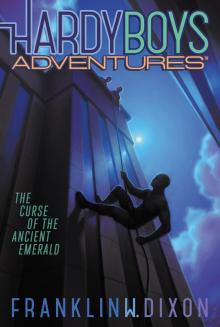 The Curse of the Ancient Emerald
The Curse of the Ancient Emerald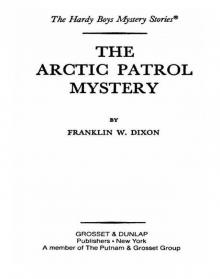 The Arctic Patrol Mystery
The Arctic Patrol Mystery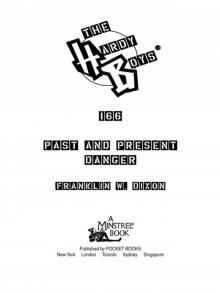 Past and Present Danger
Past and Present Danger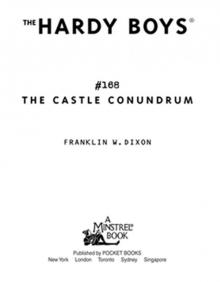 The Castle Conundrum (Hardy Boys)
The Castle Conundrum (Hardy Boys) Farming Fear
Farming Fear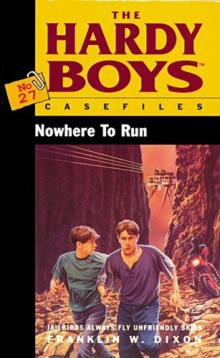 Nowhere to Run
Nowhere to Run The Secret of the Soldier's Gold
The Secret of the Soldier's Gold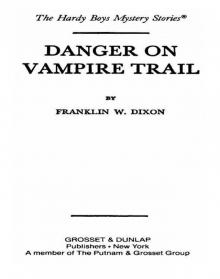 Danger on Vampire Trail
Danger on Vampire Trail The Lure of the Italian Treasure
The Lure of the Italian Treasure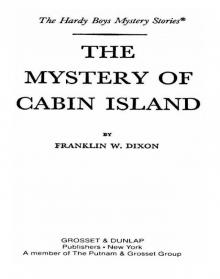 The Mystery of Cabin Island
The Mystery of Cabin Island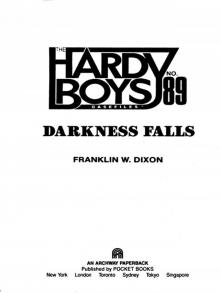 Darkness Falls
Darkness Falls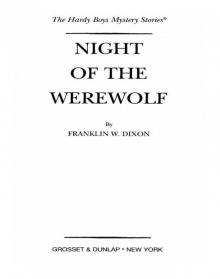 Night of the Werewolf
Night of the Werewolf Danger in the Extreme
Danger in the Extreme The Lazarus Plot
The Lazarus Plot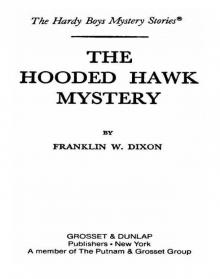 The Hooded Hawk Mystery
The Hooded Hawk Mystery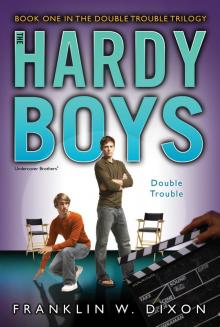 Double Trouble
Double Trouble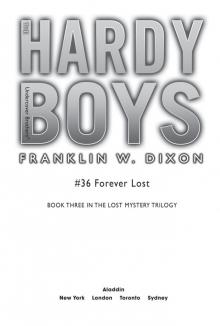 Forever Lost
Forever Lost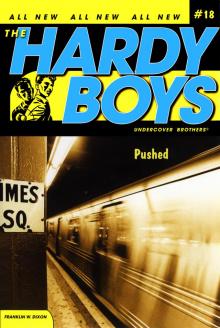 Pushed
Pushed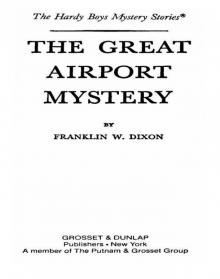 The Great Airport Mystery
The Great Airport Mystery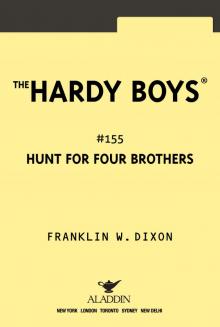 The Hunt for Four Brothers
The Hunt for Four Brothers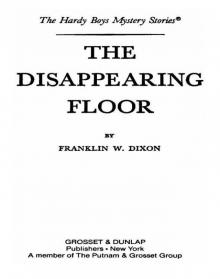 The Disappearing Floor
The Disappearing Floor Motocross Madness
Motocross Madness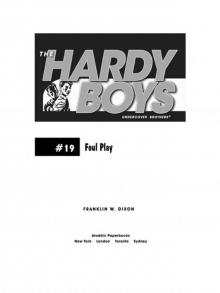 Foul Play
Foul Play High-Speed Showdown
High-Speed Showdown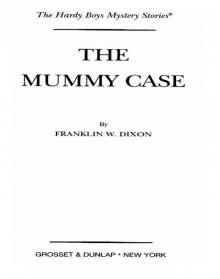 The Mummy Case
The Mummy Case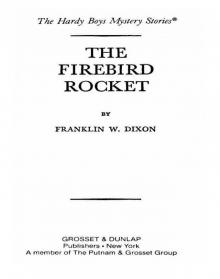 The Firebird Rocket
The Firebird Rocket Trouble in Warp Space
Trouble in Warp Space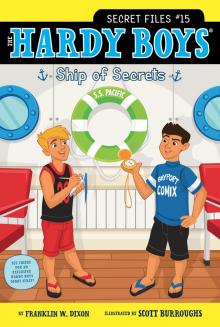 Ship of Secrets
Ship of Secrets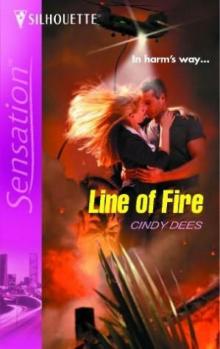 Line of Fire
Line of Fire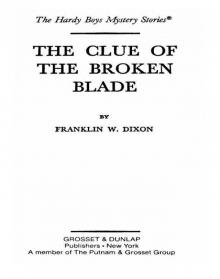 The Clue of the Broken Blade
The Clue of the Broken Blade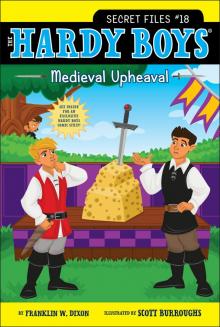 Medieval Upheaval
Medieval Upheaval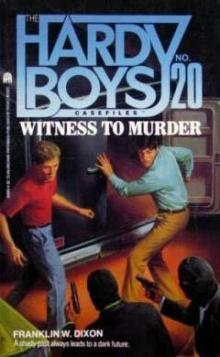 Witness to Murder
Witness to Murder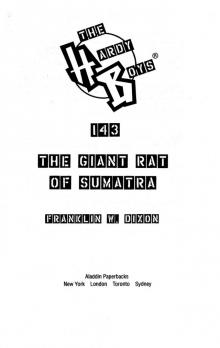 The Giant Rat of Sumatra
The Giant Rat of Sumatra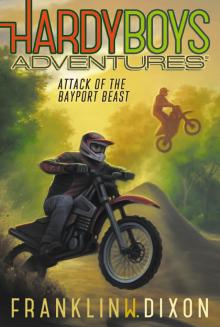 Attack of the Bayport Beast
Attack of the Bayport Beast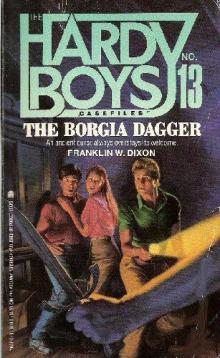 The Borgia Dagger
The Borgia Dagger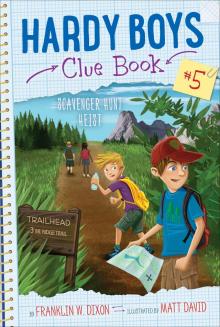 Scavenger Hunt Heist
Scavenger Hunt Heist No Way Out
No Way Out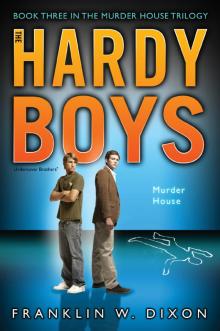 Murder House
Murder House The X-Factor
The X-Factor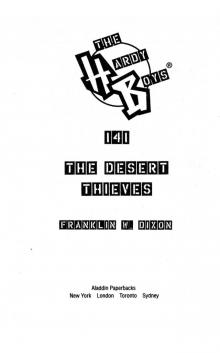 The Desert Thieves
The Desert Thieves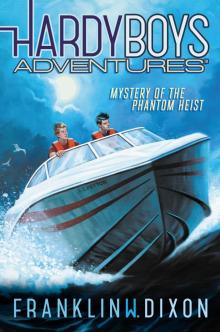 Mystery of the Phantom Heist
Mystery of the Phantom Heist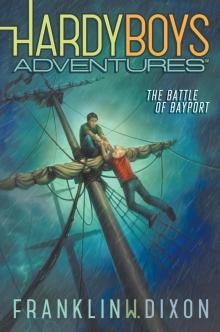 The Battle of Bayport
The Battle of Bayport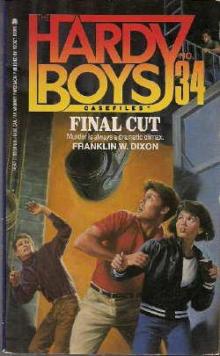 Final Cut
Final Cut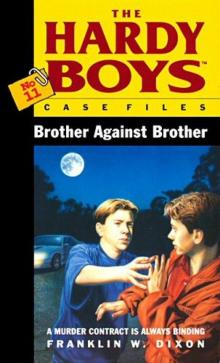 Brother Against Brother
Brother Against Brother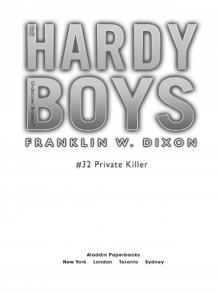 Private Killer
Private Killer The Mystery of the Black Rhino
The Mystery of the Black Rhino Feeding Frenzy
Feeding Frenzy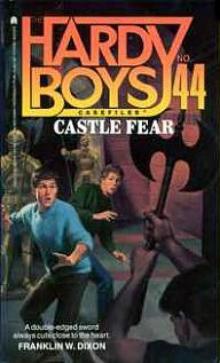 Castle Fear
Castle Fear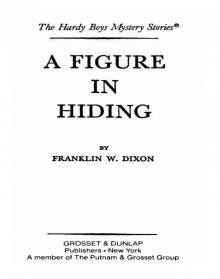 A Figure in Hiding
A Figure in Hiding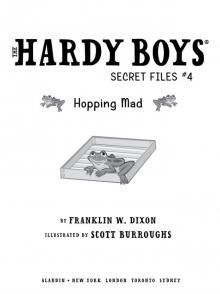 Hopping Mad
Hopping Mad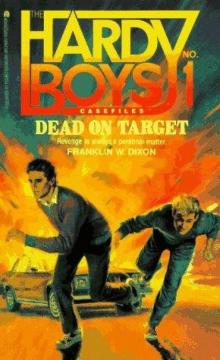 Dead on Target
Dead on Target Skin and Bones
Skin and Bones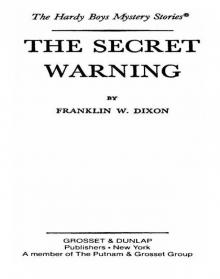 The Secret Warning
The Secret Warning Flesh and Blood
Flesh and Blood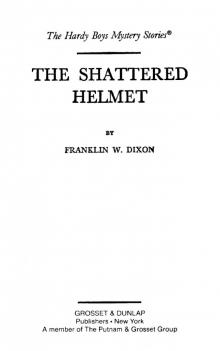 The Shattered Helmet
The Shattered Helmet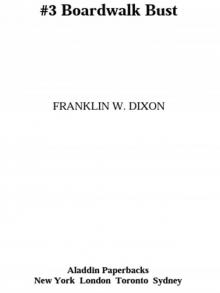 Boardwalk Bust
Boardwalk Bust Terror at High Tide
Terror at High Tide In Plane Sight
In Plane Sight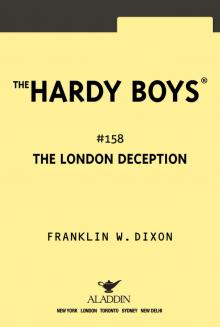 The London Deception
The London Deception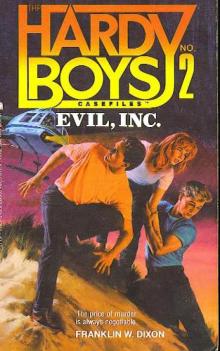 Evil, Inc.
Evil, Inc. Deprivation House
Deprivation House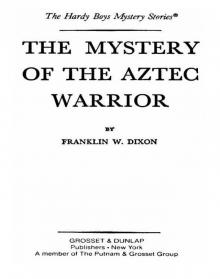 The Mystery of the Aztec Warrior
The Mystery of the Aztec Warrior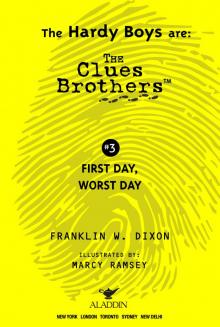 First Day, Worst Day
First Day, Worst Day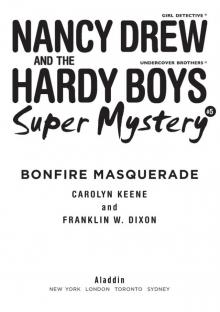 Bonfire Masquerade
Bonfire Masquerade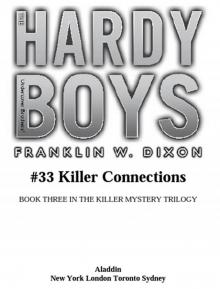 Killer Connections
Killer Connections Strategic Moves
Strategic Moves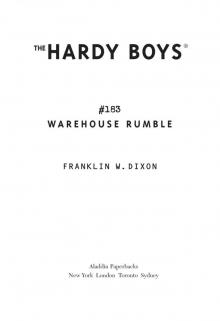 Warehouse Rumble
Warehouse Rumble The Chase for the Mystery Twister
The Chase for the Mystery Twister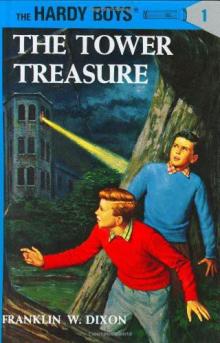 The Tower Treasure thb-1
The Tower Treasure thb-1 The Children of the Lost
The Children of the Lost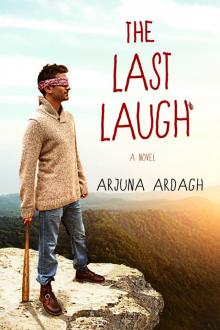 The Last Laugh
The Last Laugh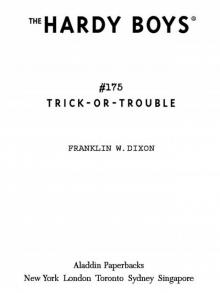 Trick-or-Trouble
Trick-or-Trouble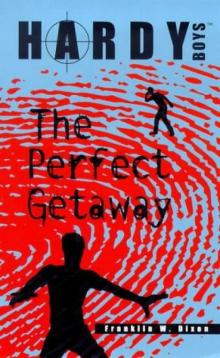 Perfect Getaway
Perfect Getaway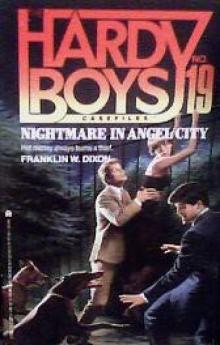 Nightmare in Angel City
Nightmare in Angel City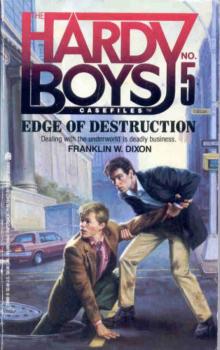 Edge of Destruction
Edge of Destruction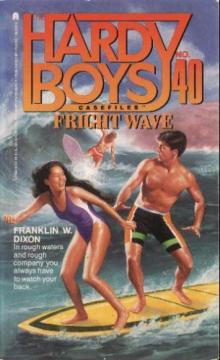 Fright Wave
Fright Wave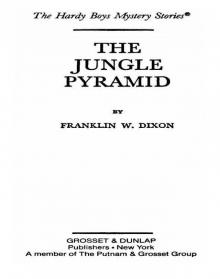 The Jungle Pyramid
The Jungle Pyramid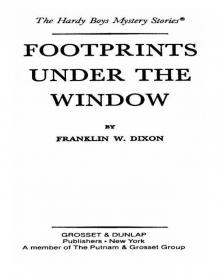 Footprints Under the Window
Footprints Under the Window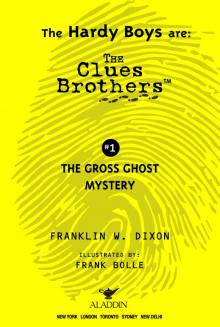 The Gross Ghost Mystery
The Gross Ghost Mystery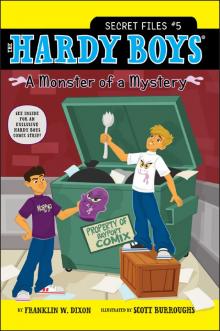 A Monster of a Mystery
A Monster of a Mystery House Arrest
House Arrest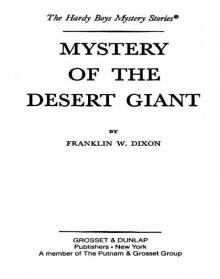 Mystery of the Desert Giant
Mystery of the Desert Giant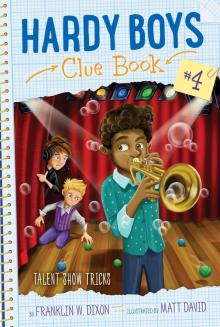 Talent Show Tricks
Talent Show Tricks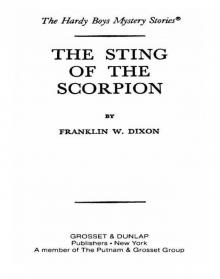 The Sting of the Scorpion
The Sting of the Scorpion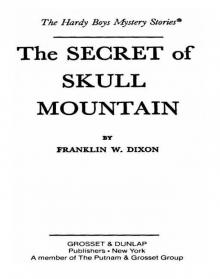 The Secret of Skull Mountain
The Secret of Skull Mountain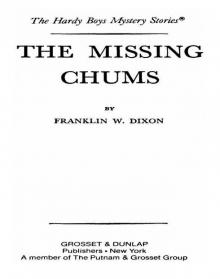 The Missing Chums
The Missing Chums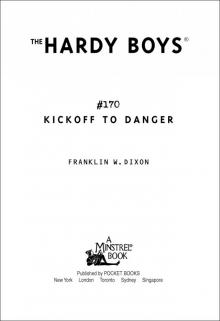 Kickoff to Danger
Kickoff to Danger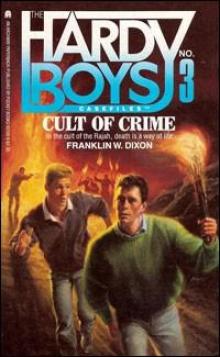 Cult of Crime
Cult of Crime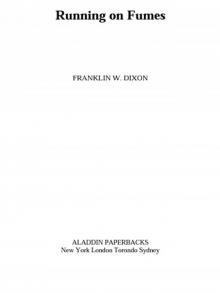 Running on Fumes
Running on Fumes Martial Law
Martial Law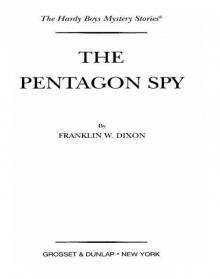 The Pentagon Spy
The Pentagon Spy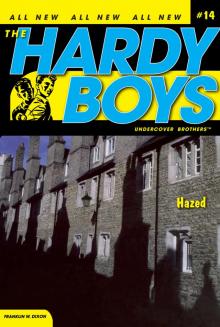 Hazed
Hazed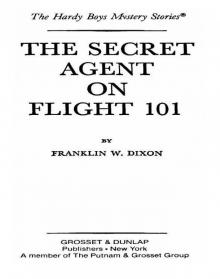 The Secret Agent on Flight 101
The Secret Agent on Flight 101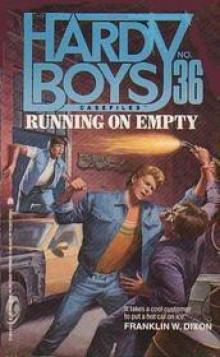 Running on Empty
Running on Empty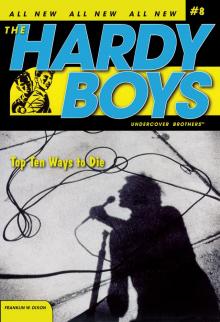 Top Ten Ways to Die
Top Ten Ways to Die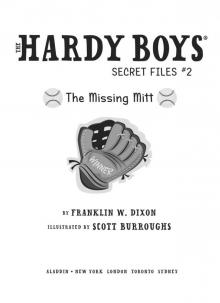 The Missing Mitt
The Missing Mitt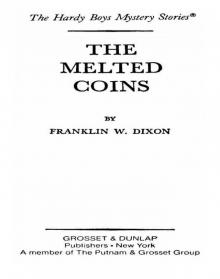 The Melted Coins
The Melted Coins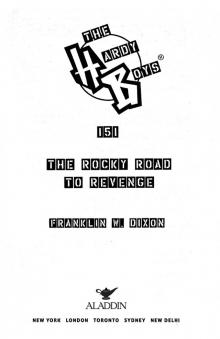 The Rocky Road to Revenge
The Rocky Road to Revenge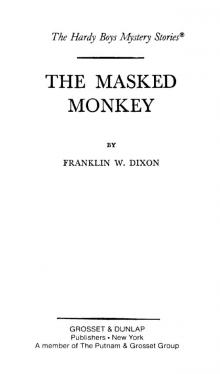 The Masked Monkey
The Masked Monkey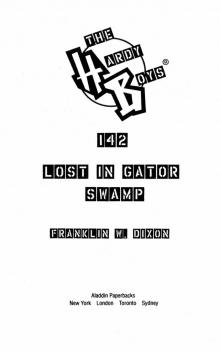 Lost in Gator Swamp
Lost in Gator Swamp Extreme Danger
Extreme Danger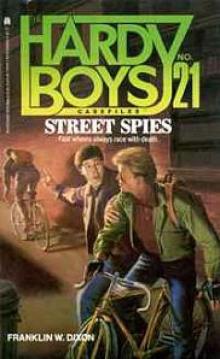 Street Spies
Street Spies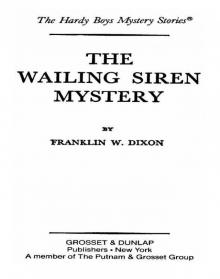 The Wailing Siren Mystery
The Wailing Siren Mystery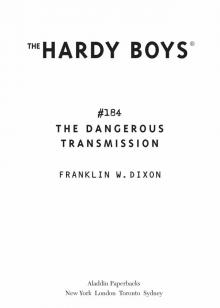 The Dangerous Transmission
The Dangerous Transmission Hurricane Joe
Hurricane Joe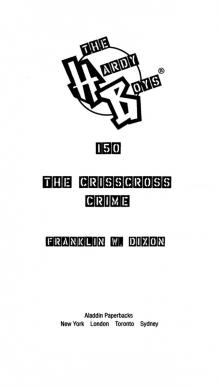 The Crisscross Crime
The Crisscross Crime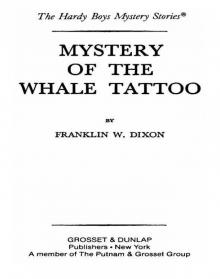 Mystery of the Whale Tattoo
Mystery of the Whale Tattoo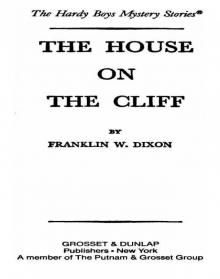 The House on the Cliff
The House on the Cliff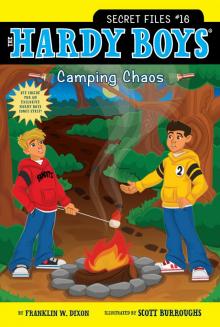 Camping Chaos
Camping Chaos Ghost of a Chance
Ghost of a Chance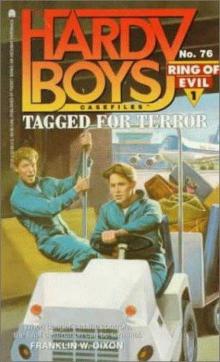 Tagged for Terror
Tagged for Terror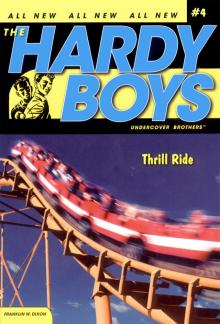 Thrill Ride
Thrill Ride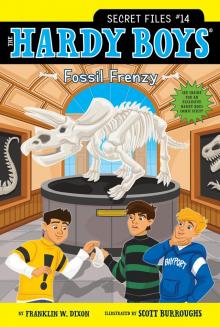 Fossil Frenzy
Fossil Frenzy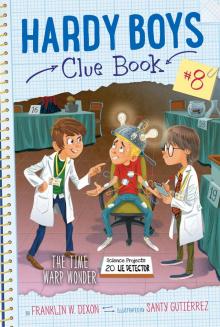 The Time Warp Wonder
The Time Warp Wonder Ghost Stories
Ghost Stories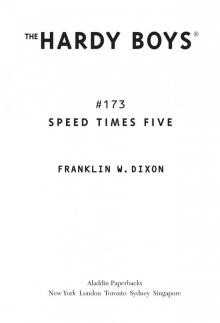 Speed Times Five
Speed Times Five What Happened at Midnight
What Happened at Midnight Three-Ring Terror
Three-Ring Terror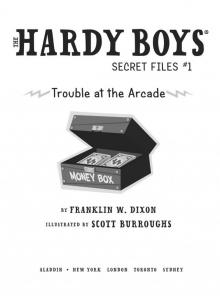 Trouble at the Arcade
Trouble at the Arcade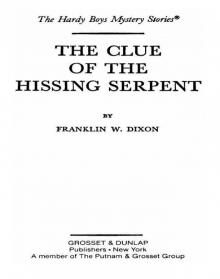 The Clue of the Hissing Serpent
The Clue of the Hissing Serpent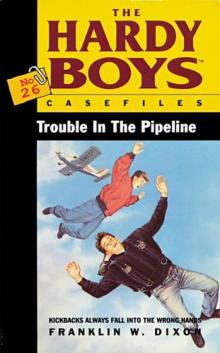 Trouble in the Pipeline
Trouble in the Pipeline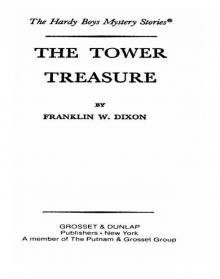 The Tower Treasure
The Tower Treasure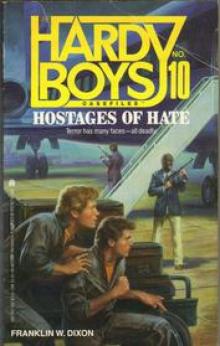 Hostages of Hate
Hostages of Hate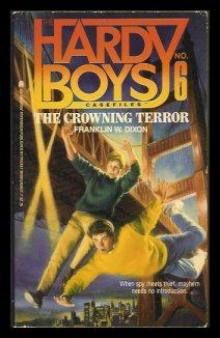 The Crowning Terror
The Crowning Terror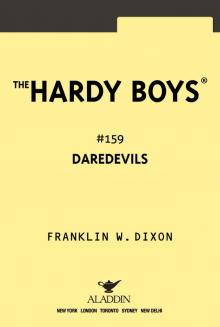 Daredevils
Daredevils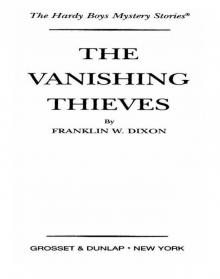 The Vanishing Thieves
The Vanishing Thieves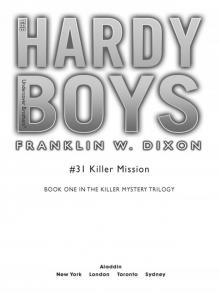 Killer Mission
Killer Mission The Mark of the Blue Tattoo
The Mark of the Blue Tattoo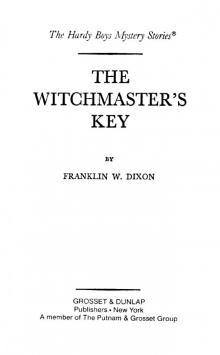 The Witchmaster's Key
The Witchmaster's Key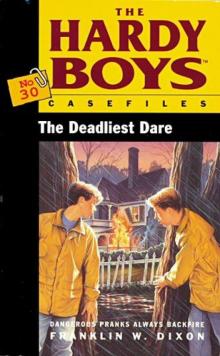 The Deadliest Dare
The Deadliest Dare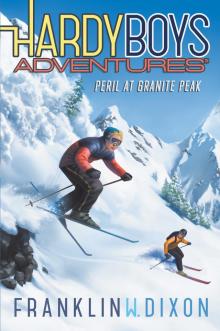 Peril at Granite Peak
Peril at Granite Peak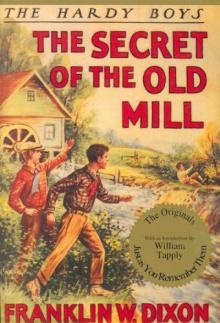 The Secret Of The Old Mill thb-3
The Secret Of The Old Mill thb-3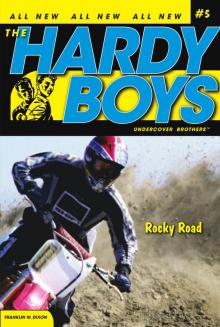 Rocky Road
Rocky Road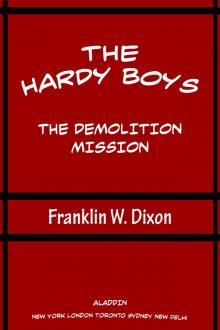 The Demolition Mission
The Demolition Mission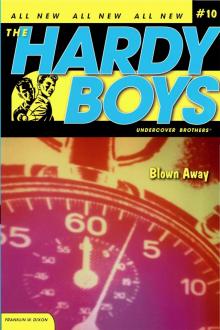 Blown Away
Blown Away Passport to Danger
Passport to Danger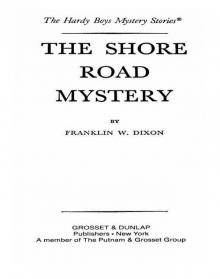 The Shore Road Mystery
The Shore Road Mystery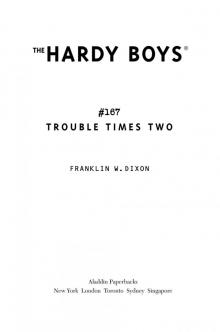 Trouble Times Two
Trouble Times Two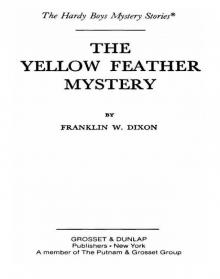 The Yellow Feather Mystery
The Yellow Feather Mystery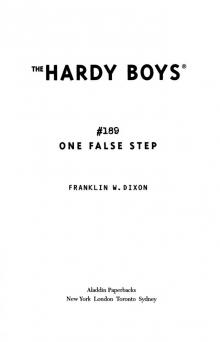 One False Step
One False Step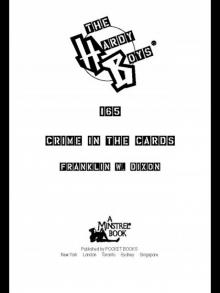 Crime in the Cards
Crime in the Cards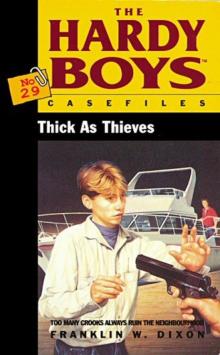 Thick as Thieves
Thick as Thieves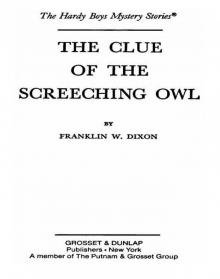 The Clue of the Screeching Owl
The Clue of the Screeching Owl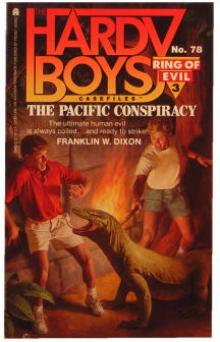 The Pacific Conspiracy
The Pacific Conspiracy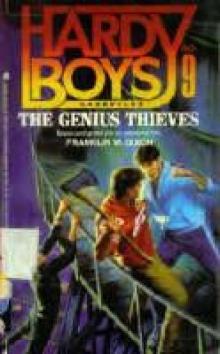 The Genius Thieves
The Genius Thieves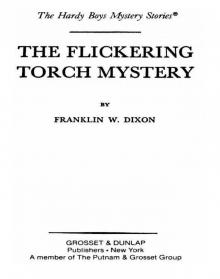 The Flickering Torch Mystery
The Flickering Torch Mystery Into Thin Air
Into Thin Air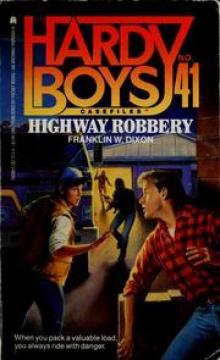 Highway Robbery
Highway Robbery Deadfall
Deadfall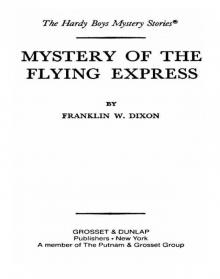 Mystery of the Flying Express
Mystery of the Flying Express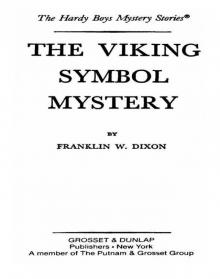 The Viking Symbol Mystery
The Viking Symbol Mystery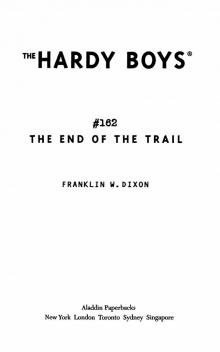 The End of the Trail
The End of the Trail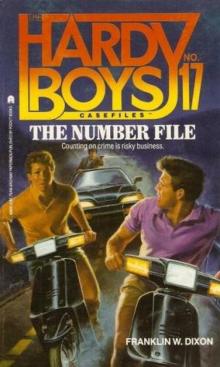 The Number File
The Number File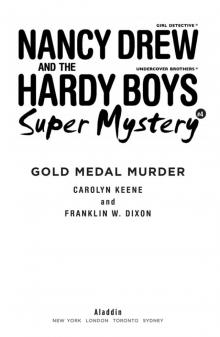 Gold Medal Murder
Gold Medal Murder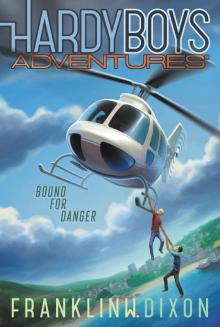 Bound for Danger
Bound for Danger Collision Course
Collision Course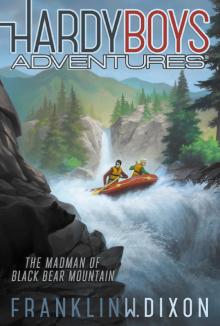 The Madman of Black Bear Mountain
The Madman of Black Bear Mountain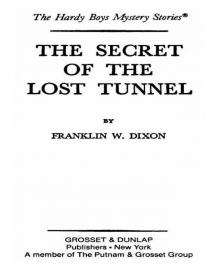 The Secret of the Lost Tunnel
The Secret of the Lost Tunnel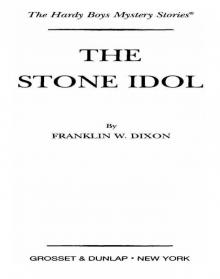 The Stone Idol
The Stone Idol The Secret of Pirates' Hill
The Secret of Pirates' Hill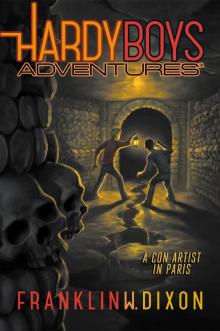 A Con Artist in Paris
A Con Artist in Paris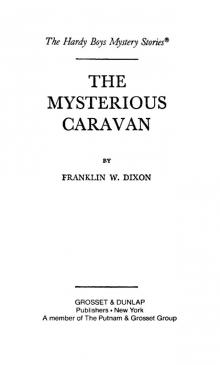 The Mysterious Caravan
The Mysterious Caravan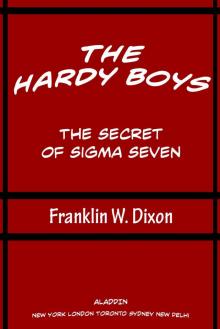 The Secret of Sigma Seven
The Secret of Sigma Seven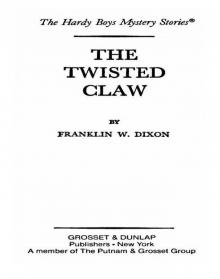 The Twisted Claw
The Twisted Claw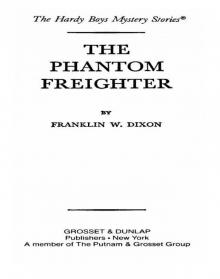 The Phantom Freighter
The Phantom Freighter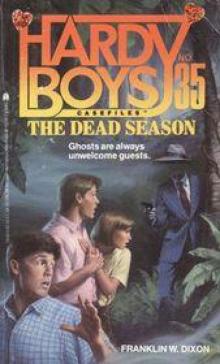 The Dead Season
The Dead Season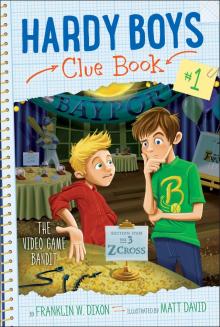 The Video Game Bandit
The Video Game Bandit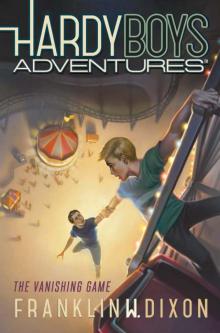 The Vanishing Game
The Vanishing Game Typhoon Island
Typhoon Island